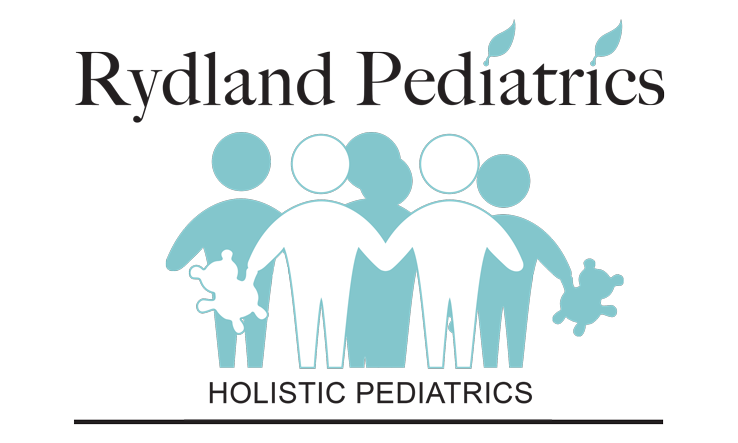Foods Likely to Interfere in Your Child’s Health
- July 11, 2014
- Diet and Nutrition, Health and Wellness
The following foods will lower your child’s overall health and vitality. They therefore should be avoided as much as possible, preferably entirely. Our experience is that so doing will improve your child’s health. Research shows that they interfere in the proper functioning of normal chemical reactions such as enzymes and processes that maintain cells and tissues.
You should always be careful to read all food labels for the following ingredients, no matter where you buy the foods (even when purchased from health food stores). Most often processed foods will contain ingredients from the following list:
CAFFEINE causes many different problems. Most of us are familiar with hyperactivity, nervousness and sleeping difficulties from caffeinated foods or drinks. In addition, this chemical places an enormous stress on the adrenal gland, an extremely important endocrine gland that produces the stress hormones adrenaline and cortisol (a naturally produced steroid). In addition, caffeine reduces populations of naturally occurring healthy bacteria in the intestinal tract (see section on Antibiotic Use/Overuse). In children caffeine also increases the risk of allergies, abdominal pain, unusual fatigue, frequently recurring illness and many other conditions. Caffeine and caffeine-like chemicals are found in coffee, black and green tea, chocolate, most carbonated soft drinks and certain medications.
SUGAR AND “REFINED CARBOHYDRATES” including white, brown, turbinado, cane and raw sugar are frequently found in processed foods. Although it is difficult to avoid these, they should either be eliminated, or sharply reduced. These refined carbohydrates are found in large amounts in many of the sweet dessert foods such as soft drinks, candy, ice cream, pastries, cookies, puddings, etc. They also may be found in many other processed foods.
In addition to sugar you should read labels of all foods to avoid or reduce all of the following ingredients: corn syrup, sucrose, maltose, dextrose, lactose, and glucose because they have similar effects on the human body. It is interesting that we eat over 50 pounds of sugar on the average in the U.S. annually per person while maintaining one of the most dismal records of national health in the world.
We feel that it is mandatory to strictly avoid Nutrasweet (aspartame) and all other sugar substitutes. There is a growing body of evidence that these cause harmful chemical reactions in the body. Aspartame is metabolized into methanol, also known as wood alcohol, in the human body. Methanol is only slowly eliminated and has deleterious effects on the liver and nerves.
Honey, barley malt, stevia (an herbal sweetener), and amazake (rice syrup) can be used for sweetening foods in moderation. Fruit juice is used to sweeten many products and in our opinion is also safe to consume. We currently feel that stevia is the most healthy of these.
Sugar and the other refined carbohydrates listed above can cause or aggravate vitamin and mineral deficiencies, high levels of cholesterol and triglycerides, hyperactivity, low blood sugar (hypoglycemia), mood swings, and adrenal exhaustion (which causes fatigue and lowered defense against the stressful events and infections in our lives). Diabetes mellitus (“sugar diabetes”), obesity, ulcers and arteriosclerosis have also been linked with higher sugar intakes by some experts. Many books have been written on the subject of dietary sugar and its effects and may be referenced for more information.
DAIRY PRODUCTS have been found by many experts to cause a number of health-related problems. Most people, for example, already know milk and milk products are a frequent cause intestinal complaints such as diarrhea, gas and bloating. This is because of problems many people have in digesting lactose or milk sugar found in cow (and goat) milk.
Dairy foods are also statistically highly allergic, the most frequently encountered allergic food at our center. We recommend that all of our patients discontinue all dairy products after their first birthday. Mothers who are breastfeeding (many breastfeeding mothers will pass the allergic dairy proteins through their breast milk) should also curtail their dairy intake. This is especially important when children suffer from chronic allergic symptoms, eczema, skin eruptions, ear infections, frequent bronchitis, asthma, stomach pains and other intestinal complaints or when there is a family history of these illnesses.
The high amount of calcium found in dairy products can cause calcium build up in your child’s body manifested as kidney stones, gall bladder stones and arthritis after varying periods of regular exposure. In addition, high amounts of calcium may block many important minerals, like zinc, from being absorbed into the body and exaggerate the lack of magnesium in the typical “Standard American Diet”.
Many of our patients will ask how a child can obtain enough dietary calcium without consuming dairy products. Dairy products are actually a poor source for the calcium needed to form strong bones. The protein in cow milk creates an acidic blood and tissue condition that actually leaches substantial amounts of minerals, including calcium, from the bones. The calcium found in other dietary sources such as nuts, many leafy green vegetables and other types of milk, such as soy, rice, oat, almond and goat milks are more “bio-available”, meaning that it is better used by the body in forming strong bones. Vegetables, especially the green ones, have other important minerals for formation of a strong bone matrix, such as magnesium and boron.
Finally, it is important to note that, although as a nation, people in the U.S. have the one of the highest per capita consumptions of calcium, we also have the highest rate of the fragile bone condition called osteoporosis in the entire world!
We rarely, if ever recommend calcium supplements without carefully examining the amounts of various minerals by performing a hair analysis. Zinc and magnesium deficiencies, which are actually more common and potentially serious deficiencies than that of calcium, can actually be caused or made worse by an excess of calcium in the diet.
WHITE FLOUR has been stripped of many of its nutrients by commercial processing, removing the outer nutrient-rich layers known as the bran and germ. White grains, including white flour may contain trace amounts of a toxic element called cadmium within the white part of the grain. Without the other naturally occurring minerals in the husk (bran and germ) of the whole grain this cadmium is more readily absorbed and may adversely affect the neurologic system to an even greater extent than lead. (Cadmium is also found in coffee, white sugar, some canned foods and tobacco smoke.) Wiser substitutes for white flour and other white grains would be whole grains or freshly ground whole grain flour.
We feel that it is important to remember that any length of time between grinding the grain into flour and eating it causes the natural oils found within the grain to become oxidized (partially rancid) because of contact between the oil and oxygen in the air. It is better to either freshly grind your own grain or avoid any products containing flour. This is especially important if your child has a condition associated with inflammation, such as allergies, hayfever, asthma, eczema, psoriasis, lupus and other similar conditions. In addition, many children are sensitive (allergic) to the proteins found in wheat, oats, barley and rye, especially gluten. Some people feel that genetic alteration of grains for farming has increased both gluten and “lechtins”, implicated in obesity.
ALCOHOL is not ordinarily consumed by most young children unless culturally they are exposed to it. It must be eliminated in the healthy diet. I will not go deeply into alcohol related problems as they are familiar to most people. Studies indicating that wine is helpful in preventing heart disease are now being contradicted by new evidence that suggests that it is not so much the alcohol, but the antioxidants, especially pycnogenol and other similar compounds that exert the beneficial health effects.
The small amounts of alcohol found in herbal and homeopathic medications are not felt to be harmful to most children. We strongly recommend, however, that you either find products without alcohol or evaporate it. Many of the newer preparations for children use healthier substitutes for alcohol.
Dr. Eric N. Rydland, graduated from the University of Miami undergraduate and School of Medicine in 1974 and 1978 respectively and completed his pediatric training at the University of Miami Affiliated Hospitals in 1981. He is pediatric board certified by the American Board of Pediatrics. During his nearly 30 years of clinical experience Dr. Rydland has researched and studied the holistic field and alternative treatments. Integrating these holistic treatments with traditional medical care based upon the wisdom only God can give, has given thousands of patients optimal health benefits. This has been achieved through work with many published authors in the alternative field, his experience, and devine wisdom. In addition to the kidsWellness products our site features other products he uses in his clinical practice. Dr. Rydland is a frequent guest on radio and television, speaker at medical seminars and public conferences, and a published author. He is the Founder and Developer of kidsWellnessTM Incorporated (October 1999)
Upcoming Events
- No Events
WHAT OUR PATIENTS ARE SAYING
Testimonial 1
How I wish I weren't writing this and that by some feat of providence we could have brought you with us to Texas – I don’t know if I’ll ever have the confidence and esteem for another pediatrician that I felt when consulting with you about Frank’s health. Thank you so much for being there when we needed you! Again thank you for everything!
Testimonial 2
Sheri, Hollywood
Sheri, Hollywood
Testimonial 3
Elizabeth, Miami Springs
Elizabeth, Miami Springs



